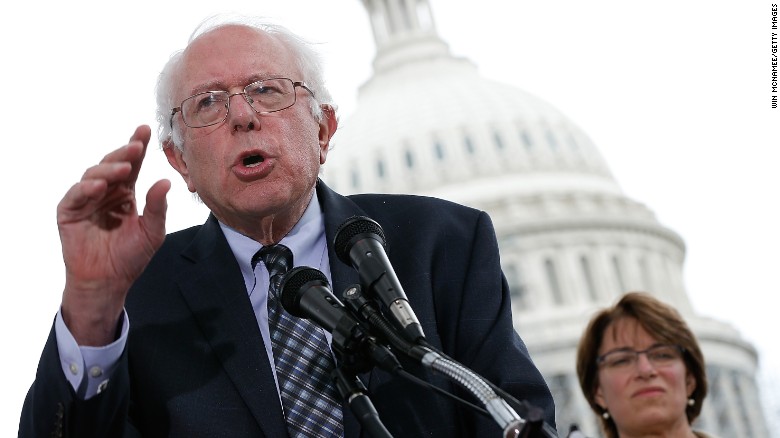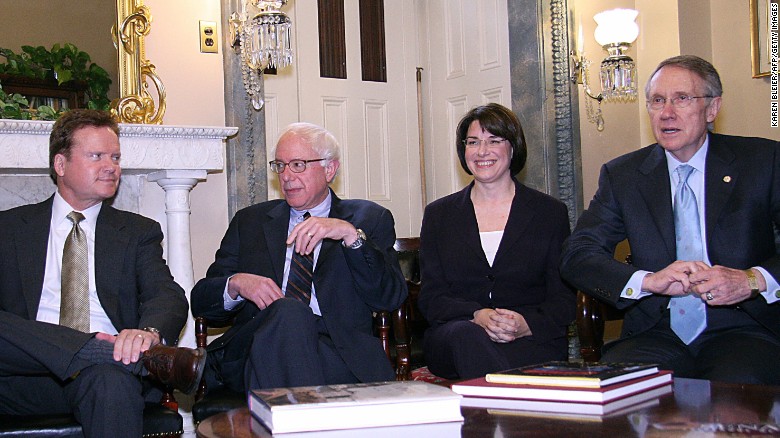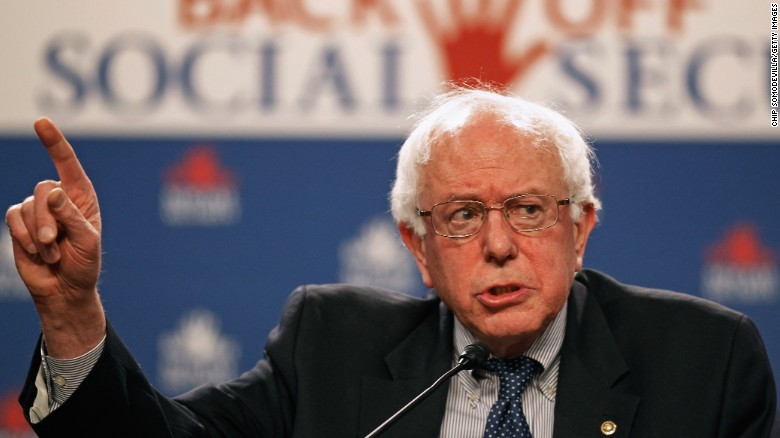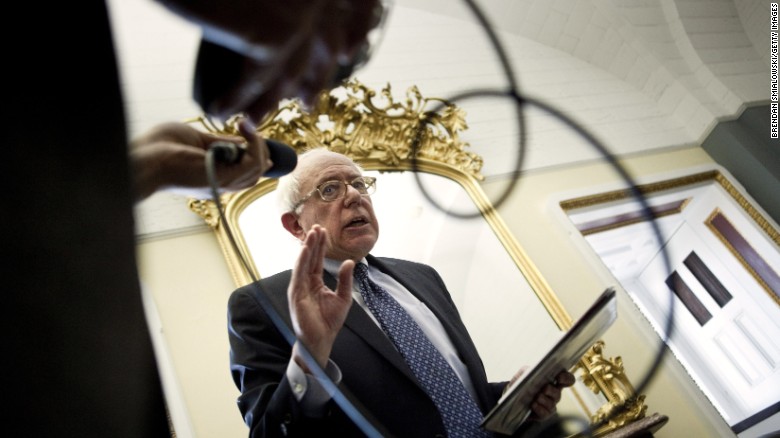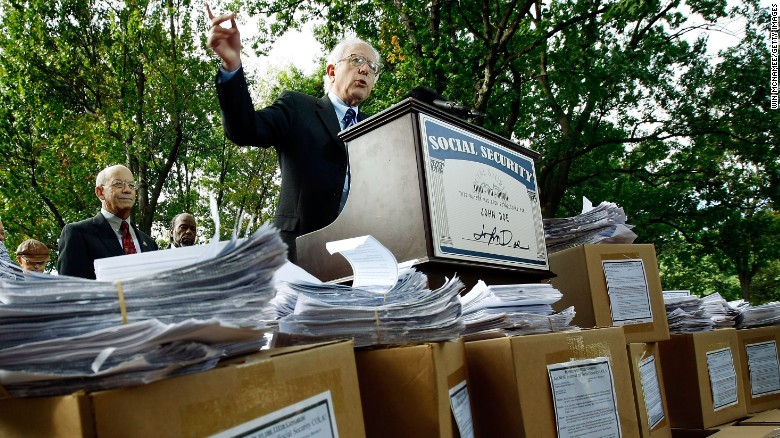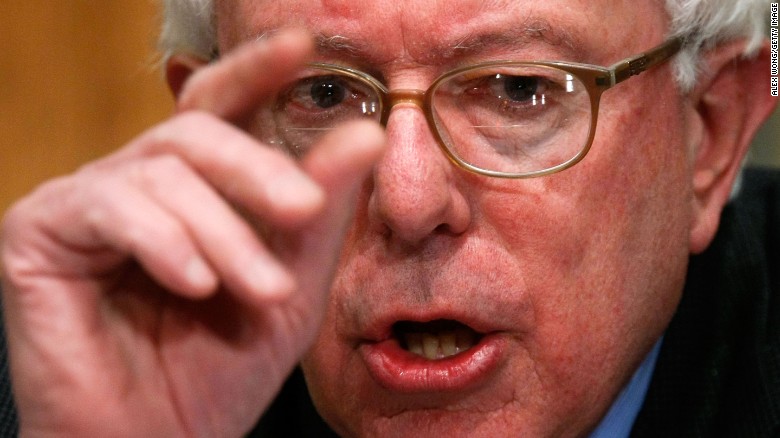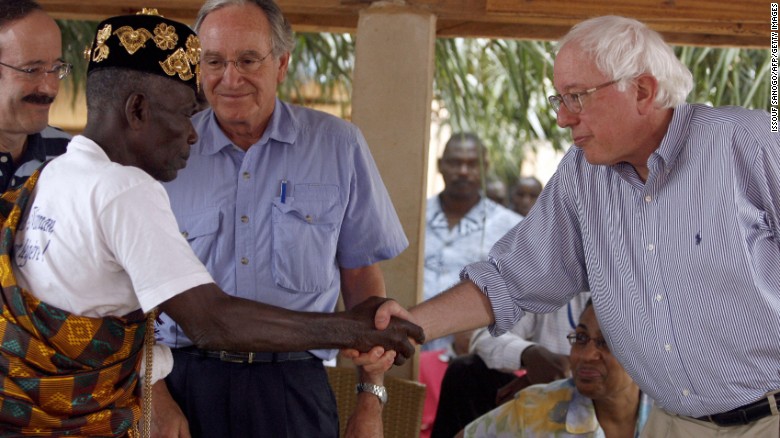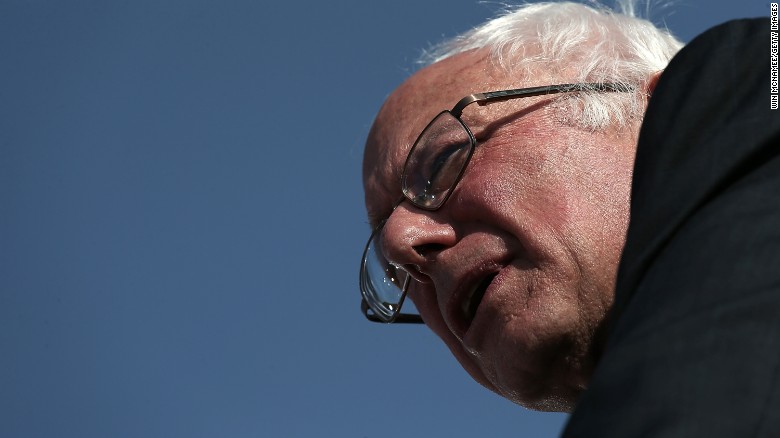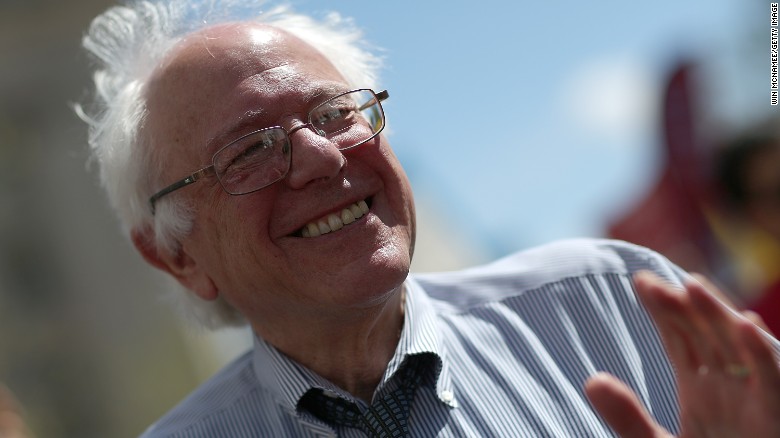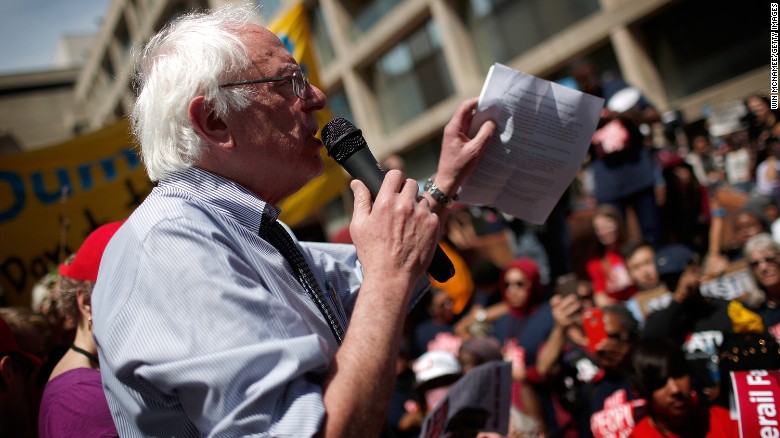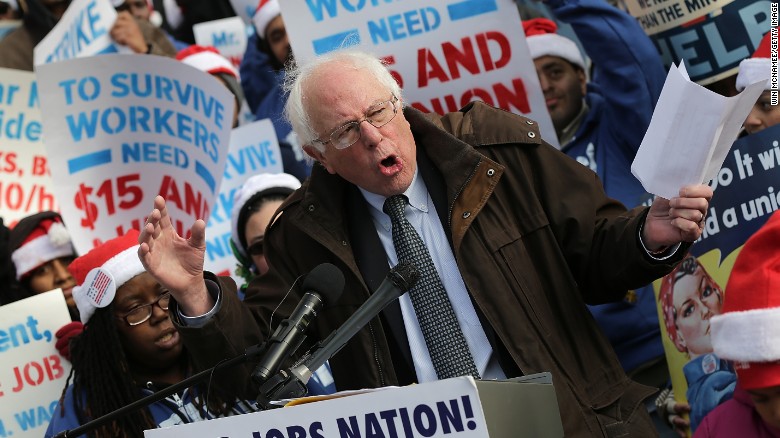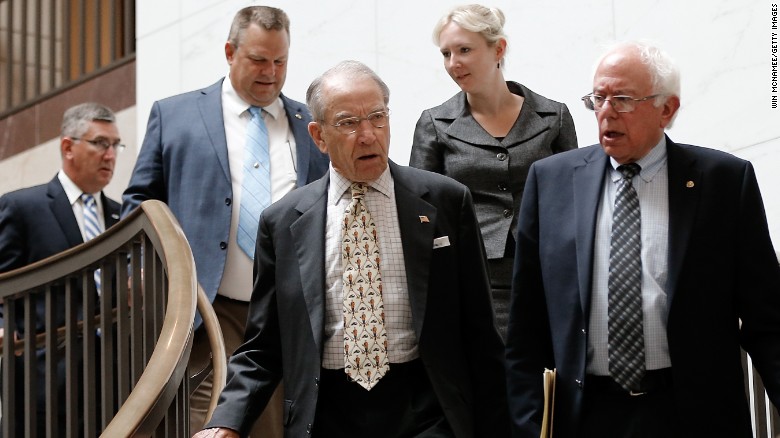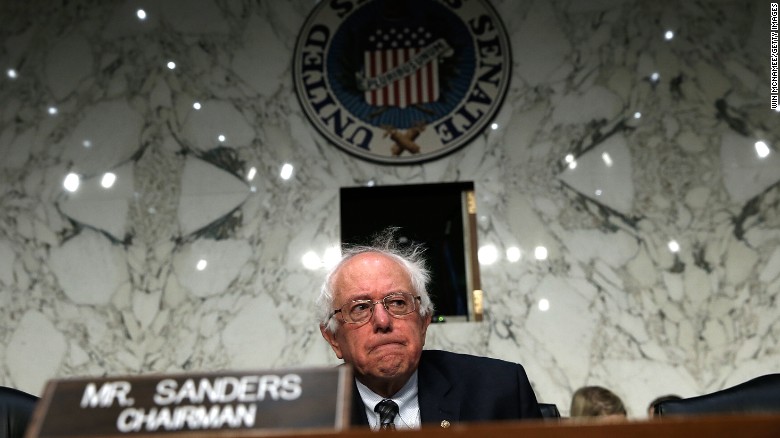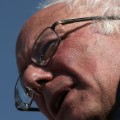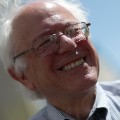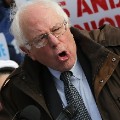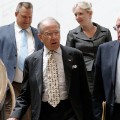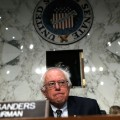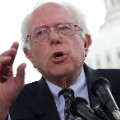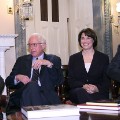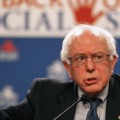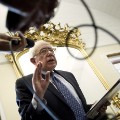The underdog Sanders leads Clinton in the early primary state of New Hampshire and is within striking distance in Iowa, although he continues to trail the former secretary of state by double digits among Democrats nationally.
Arguably, Sanders' popularity among Democratic voters is fueled as much by who Sanders isn't as who he is: His populist positions and regular-guy disposition stand out in contrast with the chronically calculating and centrist Clinton.
And this debate is his to lose: Just by showing up on the same stage as the presumptive front-runner and showing a wider audience that he can substantively and stylistically challenge Clinton, Sanders gains.
But what about Clinton? She wants to avoid a protracted fight for the Democratic nomination, not to mention the sort of upset she suffered at the hands of Barack Obama in 2008. So it's in her best interest to brush aside Sanders as soon as possible. The first Democratic primary debate is her earliest and best opportunity to do so. How?
Look for Clinton to employ three strategies.
First, she'll likely try to lump her positions in with those of Sanders (and the other Democratic contenders) and say that all of the Democratic candidates mainly share the same vision and the party's best interest is served by picking the one with the best shot at being elected.
Electability is Clinton's strongest argument, especially as more and more Democrats become legitimately freaked out by the cast of characters vying for the Republican nomination. It's in Clinton's interest to de-emphasize the ideological differences on the Democratic side and imply more agreement than not -- which is, for the most part, true.
Sanders will try to poke holes in that script, especially with respect to Clinton's economic agenda, which has been rhetorically populist but conventionally centrist in policy terms.
Beyond increasing the minimum wage and supporting job training programs, how will Clinton address the structural inequities that modern capitalism is producing? How will she square her warrior-for-the-middle-class chatter with her history of coziness with Wall Street and big business? And where does she stand on the
Trans-Pacific Partnership trade deal?
Sanders and many populist Democrats have opposed the agreement as a giveaway to big business that will hurt American workers. While Clinton tacitly backed the deal while secretary of state, she's now free to express her own opinion separate from the stance of the Obama administration.
Will she ally herself with populist opposition to the trade deal? And even if she does, will people believe her stance is anything more than crass opportunism to win voters fleeing her for Sanders?
Clinton's second strategy will likely be try to highlight ways in which she is more progressive than her Democratic opponents, especially Sanders. The recent mass shooting in Oregon, just days before the debate, yet again brings to the surface the concerns of Democratic voters -- and voters in general -- who are fed up with Congress' failure to pass common-sense gun laws despite overwhelming need and widespread public support.
Here, Clinton can draw a clear contrast with Sanders, who has
opposed some gun control measures and is out of step with the majority of Democratic primary voters on this issue. While she may have difficulty demonstrating her sincerity on economic populism, here the contrast with the senator from Vermont is strong -- his weak record on guns is a hard position to defend, especially now.
Similarly, Clinton can try to distinguish herself as more progressive in addressing racial bias and structural racism. Despite Sanders' self-professed position as the most progressive candidate, in speaking about racial justice, police violence and the Black Lives Matter movement, he has been woefully inadequate at best.
Clinton hasn't been much better, with her discussions on race often tainted by an unsettling defensiveness. But she's still clearly more comfortable talking about race than Sanders and has given more thought to how racial injustice poisons America's institutions and culture. Talking about this more in the debate will be good for America -- and good for her candidacy.
Third, look for Clinton to try to connect authentically with viewers at home and show her human side. Many voters may get lost in the substantive back and forth over what Clinton supports versus what Sanders supports and their various policy-based accusations against each other. But elections are also about gut instincts over which candidate shares your values and vision. And those gut instincts are especially triggered when voters see the candidates side by side.
While part of the appeal of Sanders, like part of the appeal of Donald Trump, is ideological -- white racial anxiety and xenophobia in the case of Trump, skepticism about the current economic order in the case of Sanders -- what both share is the refreshing impression of being straight shooters. Trump doesn't hesitate to insult every Mexican. Sanders isn't afraid to call himself
a socialist.
Both personalities fly in the face of the conventional overly calculated politics that the Clinton brand helped invent.
For her part, Clinton can say all the right things, but if she spouts populist rhetoric while sounding like an out-of-touch patrician, it won't work. That's not to say Clinton should emphasize showing more of her heart and humor, as campaign aides have promised in a retooling. Rather she should just be her damn self and show that to the voters. We don't want a particular personality so much as we want a real person. Hopefully, if nothing else, Trump has taught candidates that.
The first Democratic debate will be pivotal since voters will form first, and perhaps lasting, impressions of how the candidates match up. It is Sanders' debate to lose. But, if she plays it right, it could also be Clinton's debate to win.
